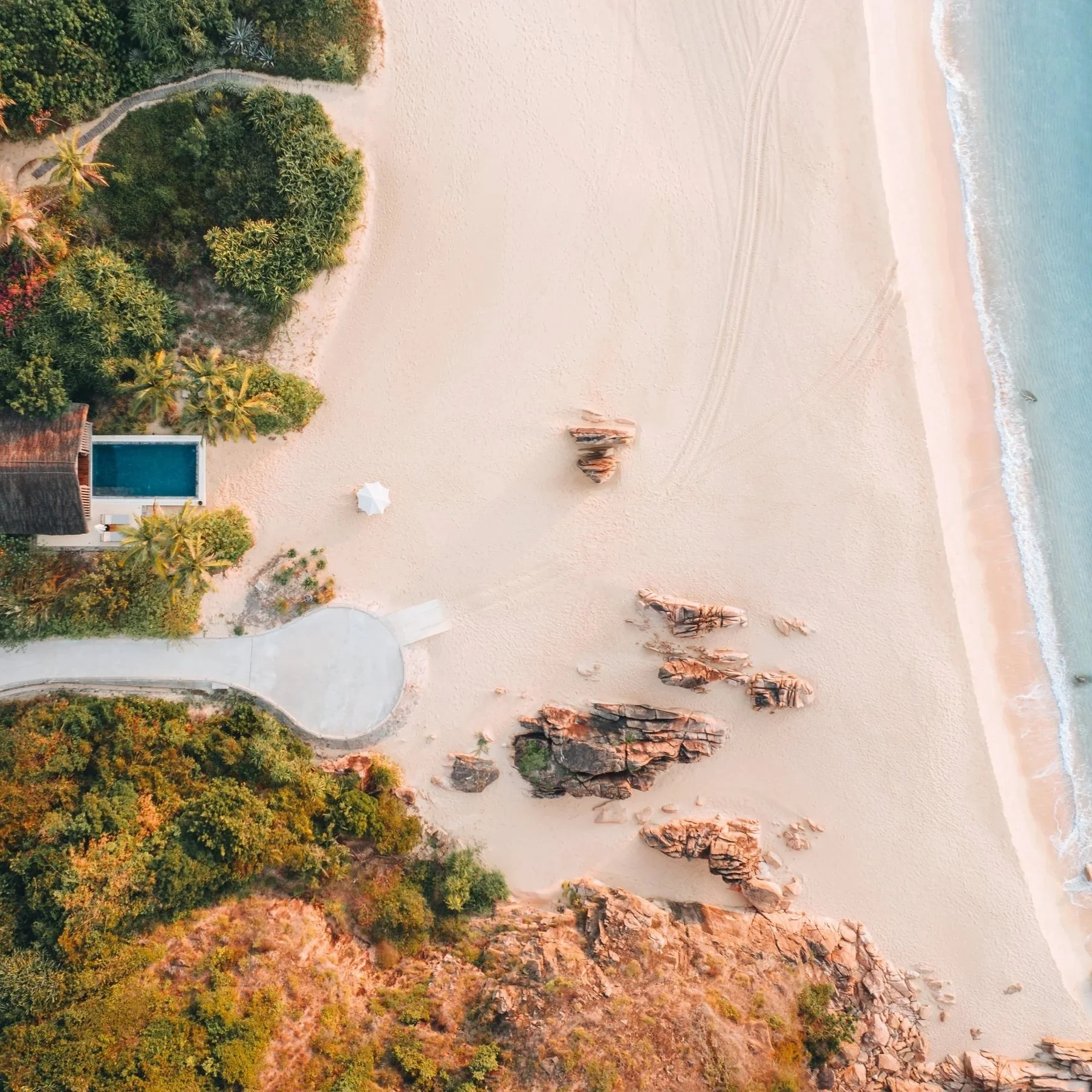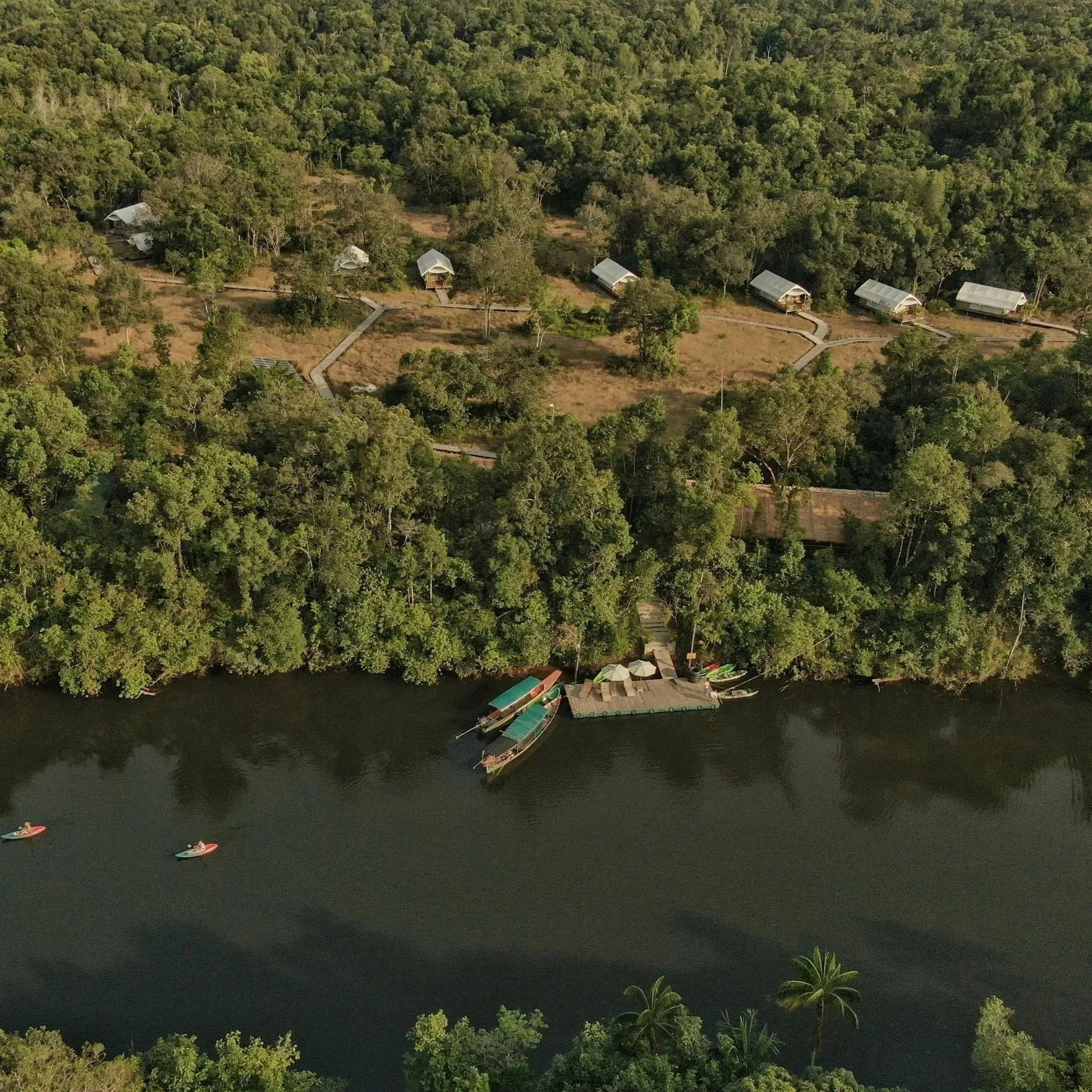How Hotels Turn Sustainable Food Sourcing into A Brand Advantage
Aerial View of the JW Garden of JW Marriott Khao Lak. Photo by brand.
What’s at Stake?
For decades, luxury hospitality in Asia has been synonymous with imported “premium” ingredients, immaculate plating, and international fine dining.
But this model comes at a cost.
The European Commission estimates that transporting food generates nearly 20% of food system emissions, amplified by long-haul imports of out-of-season produce and meat. At the same time, the very staples that underpin Asian diets, such as rice and wheat, are increasingly vulnerable to climate extremes, from erratic rainfall to rising heat. The FAO’s 2023 report warns that yields are already falling across the region.
Paradoxically, smallholder farmers, who produce more than 60% of Asia’s food, often struggle to access local hotel and restaurant markets, while nearby properties fly in ingredients from overseas. This leads to an inefficient, carbon-intensive system that no longer makes sense in today’s climate reality.
Hospitality’s Power to Cut Food Emissions
Globally, food production drives 26% of greenhouse gas emissions, according to Joseph Poore and Thomas Nemecek's meta-analysis published in Science. Here’s where they come from:
Supply chains: 18%
Livestock & fisheries: 31%
Crop production: 27%
Land use: 24%


Source: Our World in Data.
Asia accounts for half the global food market, and its growing appetite for beef has even fueled deforestation in faraway regions like the Amazon.
The lesson is clear: when it comes to menus, eating less meat, irrespective of where it is sourced, is more effective in cutting emissions.
For hospitality brands, this translates into two urgent shifts:
rethink where food is sourced by favoring local and sustainable suppliers
rethink what is grown and served by favoring climate-smart, low-input crops
When hotels and restaurants commit to responsible sourcing, they send a powerful market signal to farmers and suppliers that there is demand for change.
Disclaimer: We cover fact-based sustainability initiatives that deliver measurable impact, including those by legacy hotel brands, to show how responsible food sourcing is gaining traction across the industry. This does not imply endorsement of all practices, nor an attempt to obscure any shortcomings.
JW Marriott Khao Lak Harvests the Fruits of Change
JW Marriott Khao Lak Resort’s response to addressing food-related emissions and also providing healthy food has been to rebuild its food system from the ground up.
In April 2024, the resort launched the 27-acre JW Garden, perhaps one of the largest resort farms in Asia Pacific. The project was born from a simple question: What if a resort could grow food to cut imports, slash waste, and enrich its ecosystem, and at the same time create a richer experience for its guests?
Closing the Gap Between Farm and Table
The resort’s JW Garden, home to 300 hens and a working farm, produced over 5.8 tons of organic vegetables, herbs, and edible flowers in its first year, supplying buffets and menus with fresh, homegrown ingredients. Goat’s milk becomes artisanal cheese, while guests are invited to tour the garden, join workshops, and plant nipa palms to restore coastal ecosystems.
More than 4,500 visitors have taken part, turning holidays into hands-on lessons in climate action and bridging the gap between good intentions and tangible impact.




From left: Chef Wanwisa “Sa” Kanjam and General Manager Abhimanyu Singh guide a media tour attended by AST Co-Founder Jeremy Tran; JW Garden produce and sourdough made of leftover bread trimmings featured at the breakfast restaurant. Photos by Jeremy Tran.


The JW Garden of JW Marriott Khao Lak. Photos by brand.
Luxury Without Excess: Sown & Reborn
JW Marriott Khao Lak has challenged the idea that sustainability and luxury can’t coexist. Its Sown & Reborn initiative, now paused, showcased pasta from dehydrated trimmings, desserts with nipa palm sugar from the resort’s reforestation program, and seafood sourced from plastic-free local fisheries.
“Circular gastronomy is good for the planet and extraordinary for the palate,” says Cluster Director of Culinary Silvano Amolini. “Luxury doesn’t have to mean excess. It can be grown, sourced responsibly, or reinvented.”
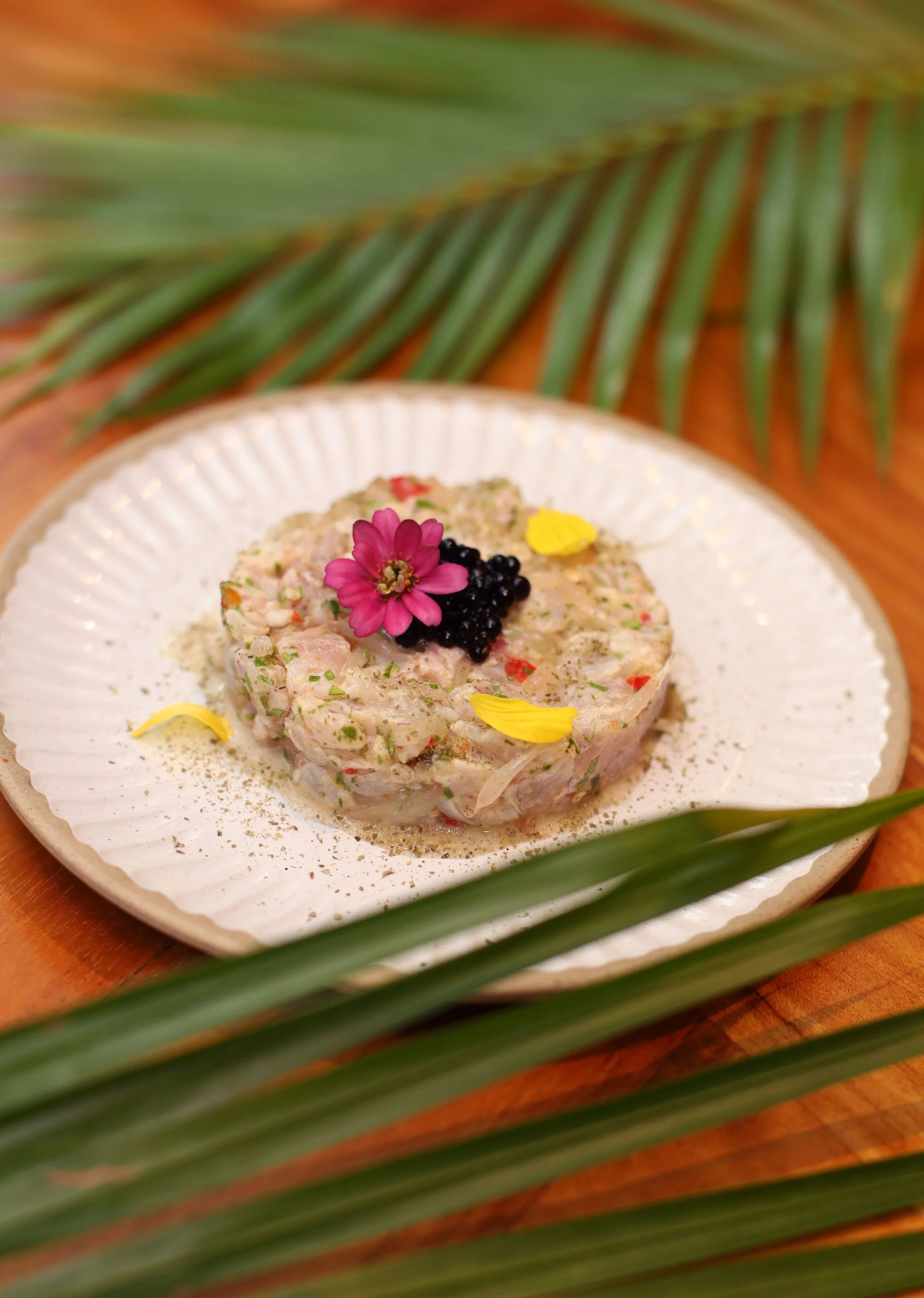

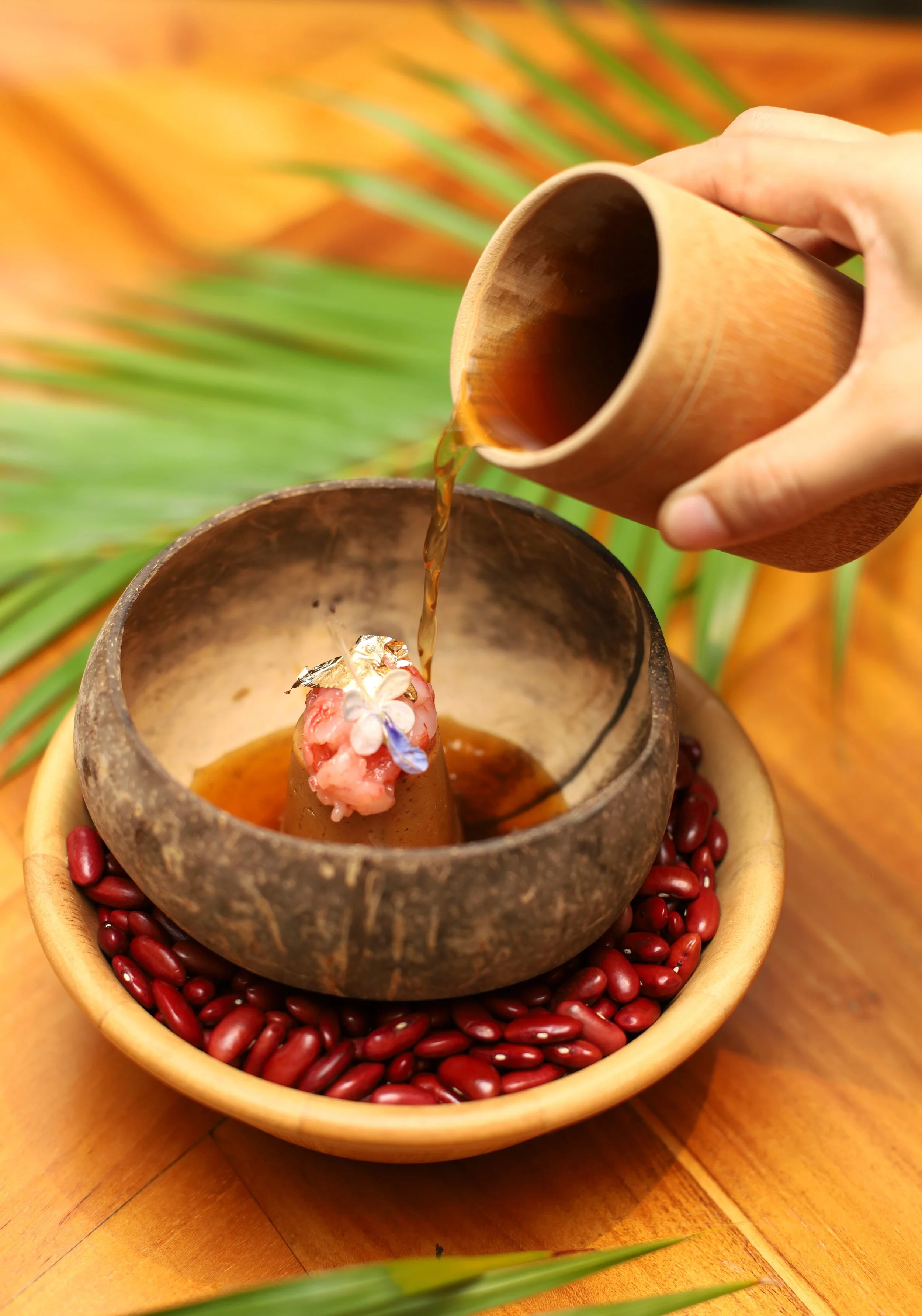
From left: The Circular Groupe, Umami Power and Prawns, and Chef Silvano Amolini. Photos by JW Marriott Khao Lak.
Turning Waste Into Wonder
The resort tackles food waste, which is a global hospitality challenge driving emissions and costs, through circular gastronomy.
In one year, surplus fruit becomes 2,100 liters of juice, 1,000 kg of watermelon rind turns into candy and pickles, 684 kg of bread into sourdough, and scraps like potato peels, rice, focaccia, and eggshells are reborn as chips, crackers, and pasta. Even coffee grounds and wood ash return to the soil as fertilizer.
Reducing food waste must remain the top priority, but when waste does occur, it should be treated as a resource to unlock.
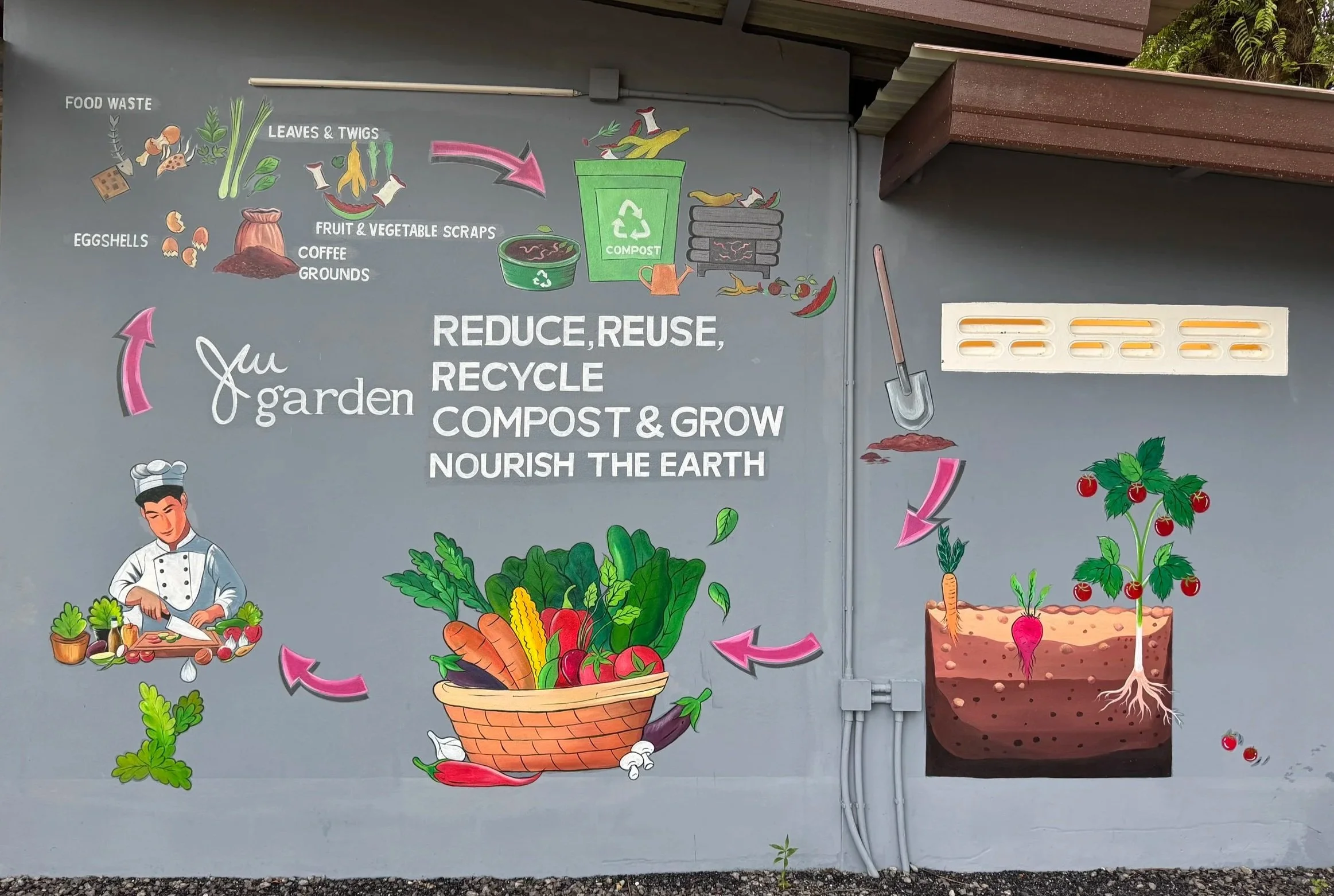


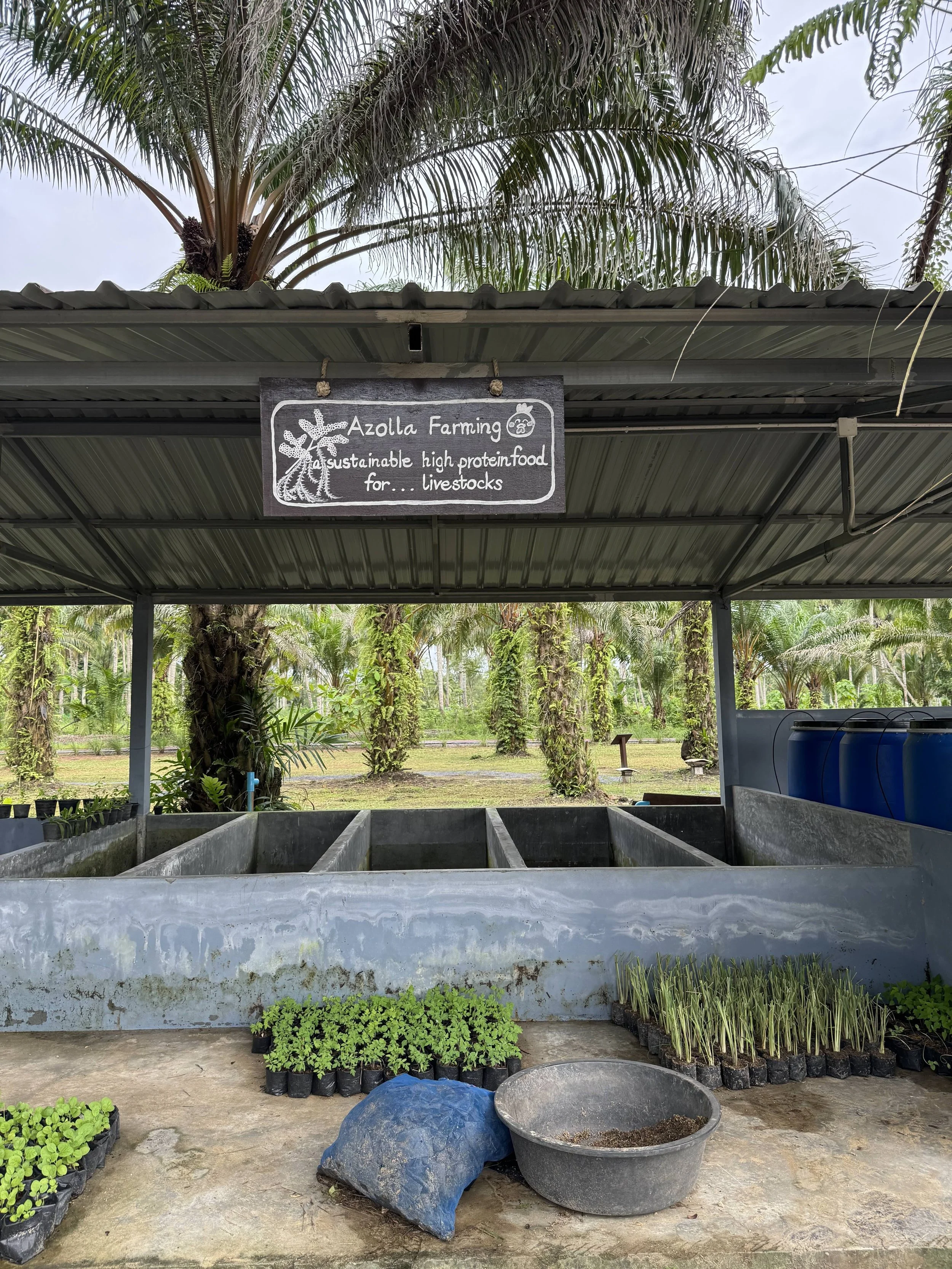
Food Waste Management Area at JW Marriott Khao Lak. Photos by Jeremy Tran.
Seeds of Change Poised to Flourish
In the context of a full resort operation, these achievements may seem modest.
But taken together, they represent a positive way forward for hospitality. If a 424-room JW Marriott property has begun to address food-related emissions in an integrated approach, it shows that sustainability should not come at the expense of luxury.
The resort has the potential to scale sustainability even further.
Six Senses Uluwatu Elevates Farm to Fork on the Cliffs of Bali
At Six Senses Uluwatu, the property’s working philosophy of responsible food sourcing is captured in the brand pillar #EatWithSixSenses, where food is not just served, but told as a story of place, people, and planet.
Dining With the Seasons at Rocka Restaurant
Perched on Uluwatu’s cliffs, Rocka Restaurant champions seasonality over imports, letting each menu follow what’s fresh and locally available. From sunrise breakfasts to starlit dinners, dishes celebrate the bold flavors of Nusantara and Southeast Asia, while daily-made juices, kombucha, and snacks nourish body and spirit. By sourcing close to home, Rocka reduces carbon-heavy imports and restores authenticity to the dining experience.


Photos by Six Senses Uluwatu.
Mindful Sourcing: Supporting Small Farmers and Artisans
Across Asia, small farmers and artisans often struggle to compete against industrial supply chains.
The resort sources directly from Bali’s chocolate makers, honey producers, and coffee growers who honor natural rhythms, while its own gardens supply fruits, vegetables, and herbs for Rocka’s menus. Bulk deliveries arrive free of single-use plastic, ensuring minimal processing, maximum freshness, and no wasted detail.
The result is a dining experience that celebrates terroir while reducing packaging waste and transport emissions.


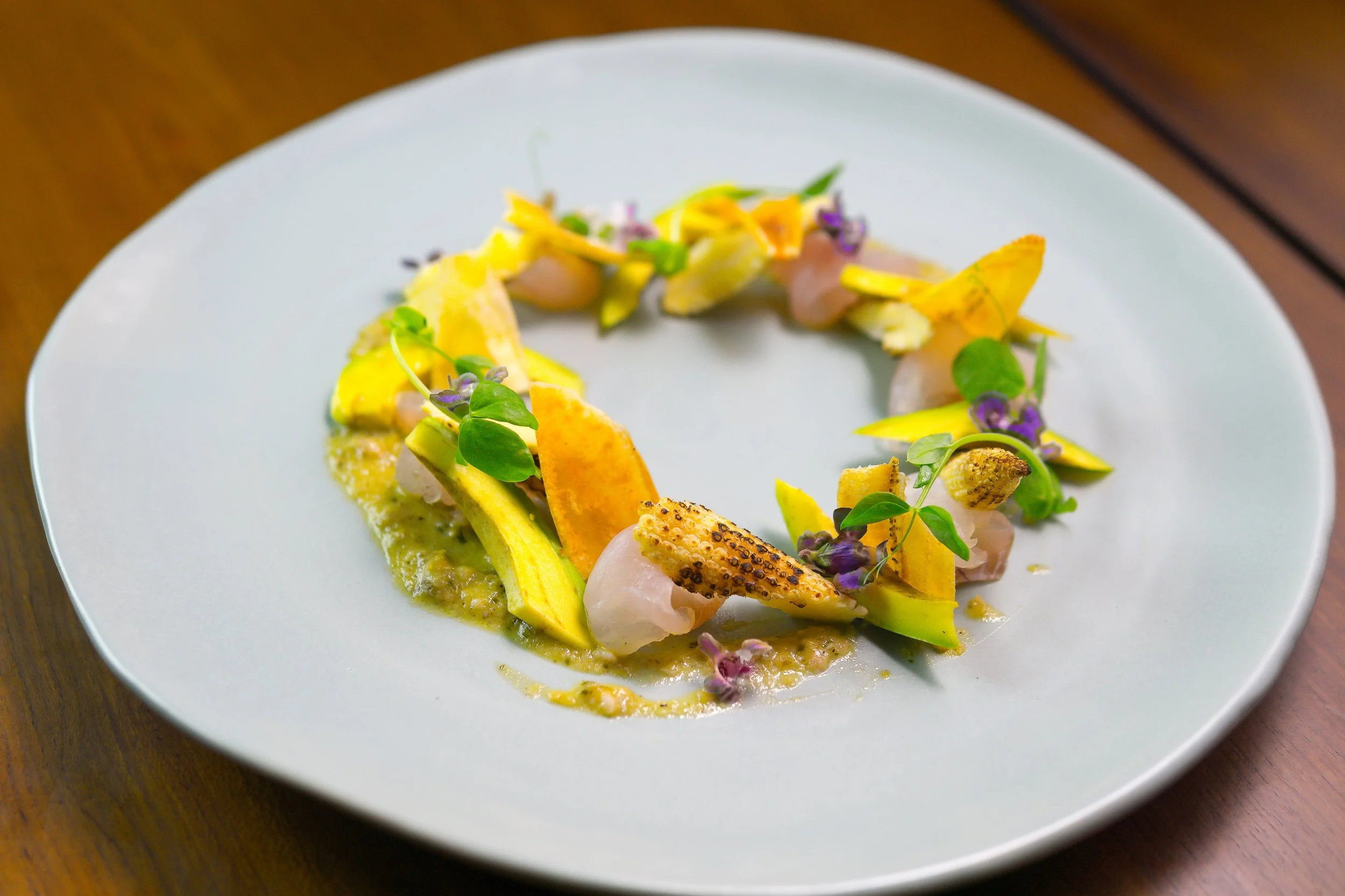
Photos by Six Senses Uluwatu.
Repurposing Food Waste for Greater Good
With one-third of the world’s food wasted, Six Senses Uluwatu takes action by partnering with Scholar of Sustenance (SOS) to redirect surplus meals to local communities instead of landfills.
Even used cooking oil finds a new purpose: collected by Yayasan Lengis Hijau, it’s converted into biodiesel to power Bali’s school buses, turning waste into nourishment and clean energy.
Meliã Chiang Mai Builds Resilient Food Systems, One Farm at a Time
In Northern Thailand, where tourism demand could often favor imports over local harvests, Meliã Chiang Mai is bridging the gap by using hospitality and partnering with local farmers to strengthen its food supply’s resilience.
Since 2022, the property’s 360° Cuisine program has redefined not just what food is served, but how it is grown, sourced, and returned to the land, ensuring nearby farmers find fair markets for their chemical-free produce while guests enjoy authentic, locally rooted flavors.


Chef Suksant “Billy” Chutinthratip at Meliã Chiang Mai farm. Photos by Meliã Chiang Mai
Partnering With Local Farmers to Cut Food Miles
Meliã Chiang Mai strengthened its 360° Cuisine program by partnering with Rong Khum, a chemical-free farm in San Pa Tong founded by Chiang Mai University’s Professor Dr. Puangrat Kaewlom.
The collaboration ensures fair value and stability for farmers while supplying the hotel with important ingredients. Rong Khum joins SEED farm in San Sai and Jartisann’s Original Thai Cheese in Meliã’s growing network of ethical suppliers.
The 360° Cuisine program also puts circularity at the heart of hospitality, using every part of the harvest, and returning waste to the community as a resource.
Since launch, it has sent 3,300 kg of scraps back to farms as compost and turned 660 kg of cooking oil into biodiesel, proving hotels can transform waste into value while supporting farmers and cutting carbon.
Educating Guests: From Kitchen to Farm
Meliã Chiang Mai doesn’t keep its sustainability initiatives hidden in the back of the house.
Through its Journey to the Farm Package, the hotel brings guests directly to SEED and Rong Khum farms, where they meet farmers, learn about sustainable agriculture, and connect the dots between food choices and climate impact.
By linking a holiday to farm visits, the hotel turns sustainability into an experience, one that informs, delights, and lingers beyond the trip.
Recognition and Responsibility
Meliã Chiang Mai’s efforts have earned widespread recognition, including the “Chiang Mai Green Kitchen” certificate for the second year, the “Sustainable Healthy Food Program” award from Thai Health Promotion Foundation and Chiang Mai University, and a “Five-Star Sustainable Tourism Acceleration Rating” from the Tourism Authority of Thailand.
Its restaurants, Laan Na Kitchen and MAI Restaurant and Bar, also received the prestigious “Golden Star Award” for its sustainability achievements under Tourism Authority of Thailand’s Green Kitchen project.
For Executive Chef Suksant “Billy” Chutinthratip, these honors affirm a core belief:
“Running a chemical-free farm is challenging and costly, but working hand-in-hand with farmers, professors, and producers creates a stronger community that benefits our guests, neighbors, and the environment.”
TL; DR
Asia’s hospitality sector faces a critical reckoning with its food systems.
Heavy reliance on imports, wasteful kitchen practices, and weak connections to local farmers all drive carbon emissions and undermine resilience. But hotels are beginning to flip the script.
From JW Marriott Khao Lak’s regenerative garden and Six Senses Uluwatu’s circular dining to Meliã Chiang Mai’s 360° Cuisine, these case studies show that luxury and sustainability are not contradictions. They are, in fact, the recipe for the region’s food future.
JW Marriott Khao Lak demonstrates how on-site farming and circular gastronomy can cut imports, transform waste into value, and engage guests in regenerative action.
Six Senses Uluwatu shows how seasonality, smallholder partnerships, and surplus redistribution turn dining into a closed-loop system that blends authenticity with low impact.
Meliã Chiang Mai builds farmer resilience through fair-value sourcing and circular “farm-to-plate-to-farm” models, while turning sustainability into an educational guest experience.
Join the upcoming AST Webinar on September 3, 2025
Jeremy Tran, Co-Founder of AST will be joined by Peggy Chan, Executive Director of Zero Foodprint Asia, Andrew Dixon, Founder of Nikoi and Cempedak Islands, and Bjorn Low, Co-Founder and Chief Urban Farmer of Edible Garden City, for a live conversation on “Breaking the Chain to Save It: How Asia’s Hospitality Can Fix Food Systems.”
Together, they’ll discuss how hotels and resorts can turn sustainable food sourcing into a powerful brand advantage.
📍 Live on Zoom
👉 Don’t miss out on this insights-packed conversation.
💡 Attendees will receive a key insights report with actionable takeaways and resources to scale regenerative food initiatives.




